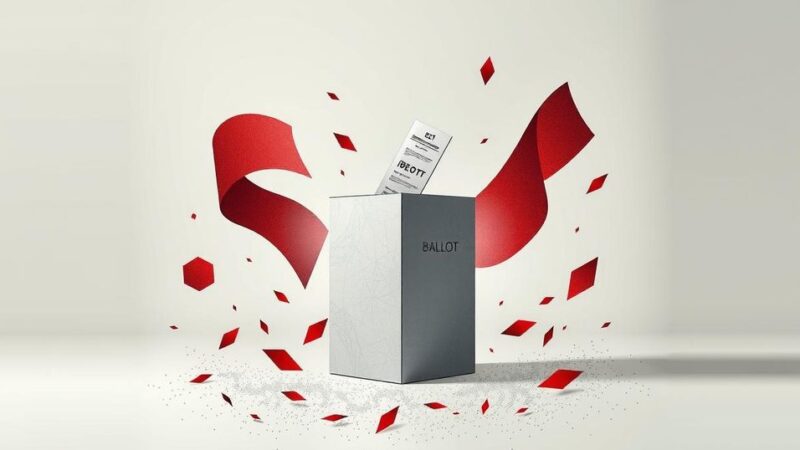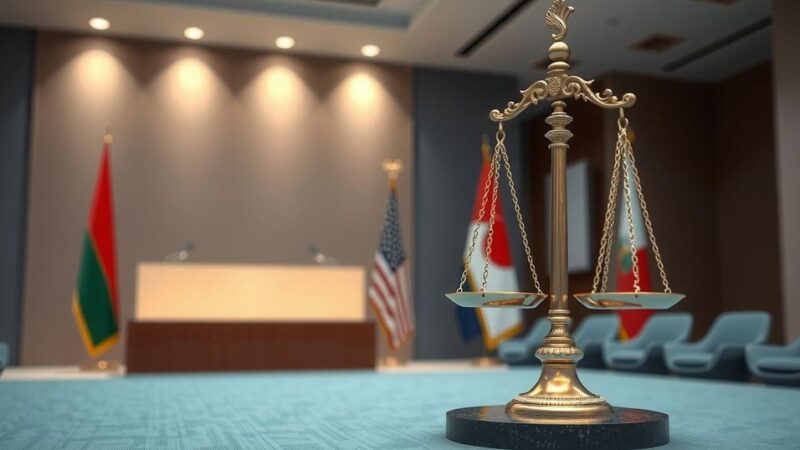Ecuador’s general election has concluded, with 16 candidates, including incumbent President Daniel Noboa and rival Luisa González, competing for leadership. A candidate must secure over 50% of votes or 40% with a ten-point lead for an immediate win; otherwise, a runoff will be held on April 13. National security and socio-economic issues are pressing challenges for the next government.
Polling has concluded, and votes are being counted in Ecuador’s general election, where 16 candidates, including incumbent President Daniel Noboa and his principal rival Luisa González, are competing for the presidency. The Ecuadorian Constitution mandates that a candidate must receive over 50% of the votes to secure an immediate victory, or surpass 40% with a ten-point lead over the nearest contender. Should these thresholds not be met, a runoff election will occur between the top two candidates on April 13, 2025.
This election will determine whether Ecuador will continue with President Noboa’s strict measures against crime or opt for an alternative voice in González. Noboa, who assumed the presidency after winning a snap election in 2023, has faced multiple challenges during his term, including declaring several states of emergency and deploying military forces to mitigate gang violence. Additionally, he has initiated the construction of a high-security prison following a notable prison escape.
González, a close ally of former President Rafael Correa, promises to address the drug trade as vigorously as Noboa. Her campaign, which emphasizes the need to “Revive Ecuador,” aligns closely with her leftist political roots. The next government’s primary concerns will include national security, economic stability, an ongoing energy crisis, and international relations.
Santiago Basabe, an analyst and professor at Universidad San Francisco de Quito, remarked, “Security is the biggest problem the government has had, but in a country with huge social inequalities like Ecuador… among the priorities of the less advantaged sectors are, in addition to security, health and education.” This highlights the need for a multifaceted approach to governance in Ecuador, prioritizing both safety and social development.
Ecuador is currently grappling with significant political and social challenges, particularly surrounding crime and economic stability. The incumbent President Daniel Noboa has enacted stringent measures to combat rising insecurity, including deploying military personnel and establishing a new prison. On the other hand, his opponent Luisa González advocates for a continued fight against drug trafficking while addressing socio-economic issues affecting the population. As the election approaches, the emphasis on prioritizing security alongside health and education has become increasingly relevant to voters.
In summary, the Ecuadorian general election is pivotal for the nation, with significant implications for its political direction regarding crime and socio-economic development. Voters face a critical decision between maintaining President Noboa’s hardline strategies or shifting to González’s alternative approach. The outcome will heavily influence the country’s strategies to address security, health, and educational inequalities moving forward.
Original Source: www.channel3000.com






